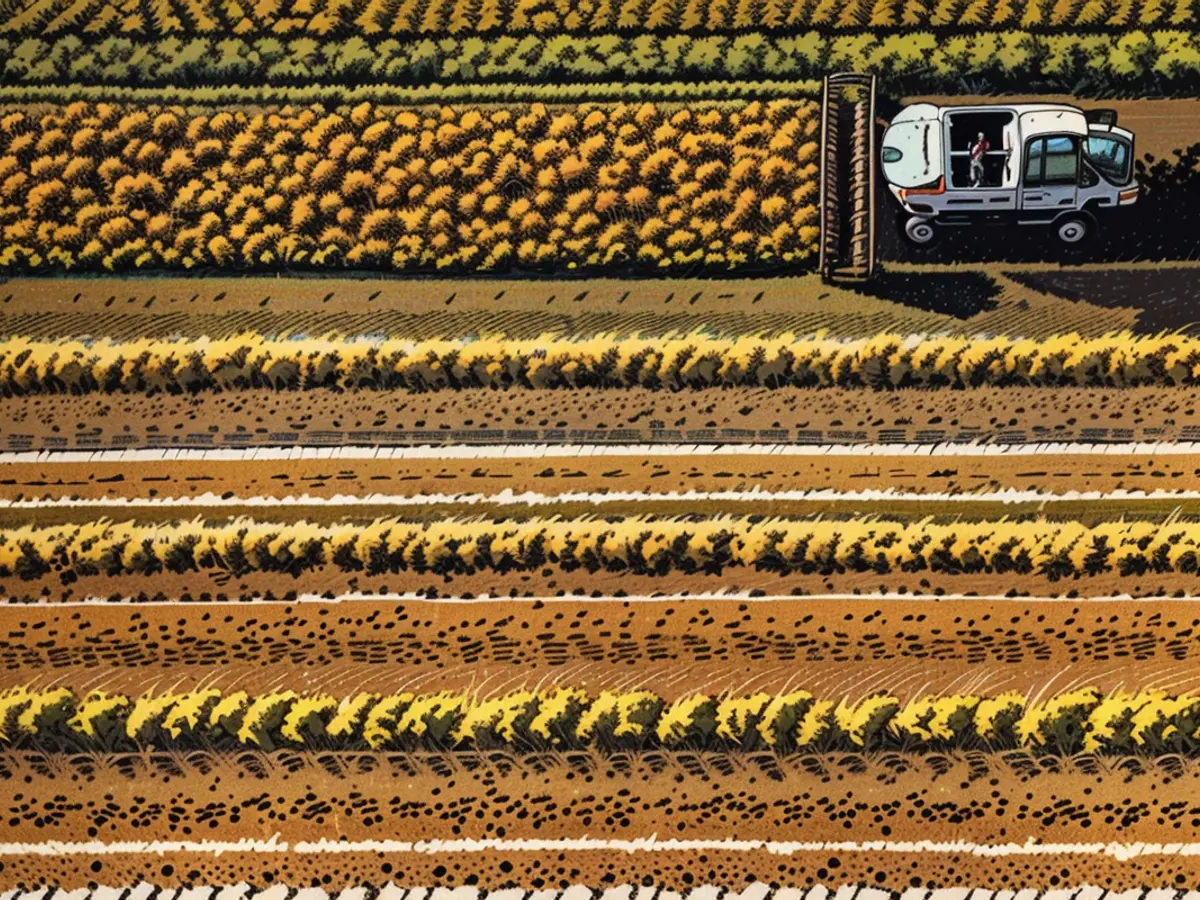- Heavy Downpours Disrupt Crop Yields in Southwestern Regions
Southwest Farmers Face Poor Harvest Due to Frequent Downpours "We're not thrilled about this year's grain yield. It's lower than last year's numbers," stated Joachim Rukwied, leader of the regional farmers' group. Surprisingly, this year has shown significant disparities in yield within individual regions due to local flooding, heavy rain, and hail.
The consistent rainfall since fall has made it tough for farmers to plant and use fertilizers and crop protection products. Rukwied also mentioned that the harvest itself was difficult, with narrow windows for combine use and frequent weather disruptions. "It hasn't been a walk in the park for our farming families this year."
In July, farmers were more hopeful. Winter grains and rapeseed had survived the winter and spring well. Under the most favorable circumstances, the association predicted slightly above-average yields. However, it's now obvious that even the historically productive areas underperformed this season.
Wheat, barley, and oats below historical averages
This year's winter wheat yield, the country's primary field crop, was three percent lower than the historical average. Farmers also reported declines in winter and spring barley and oats. Meanwhile, rapeseed yields increased by two percent compared to the average of the past six harvests (2018 to 2023).
A harvest of 2.7 million tons is expected, about 3.6 percent less than the historical average. The quality of the grain varies greatly. Some farmers benefited from the weather, particularly in regions that had previously suffered from drought. In some places, even grassland operations had excellent yields.
Decreased Harvest in Germany
Nationwide, farmers predict a harvest volume of 39.3 million tons, down from 42 million tons in 2023. Rukwied, who also serves as the federal president of farmers, expressed concern over the "significant decline in grain prices." Together with high operating costs, including energy, and restrictions on crop protection, economically viable grain farming is becoming difficult.
The regional farmers' group represents around 30,000 farmers. In Baden-Württemberg, according to the state statistical office, about one-sixth of the state's land is used for farming. In total, this was approximately 799,000 hectares in 2024.
The frequent downpours and local flooding have significantly impacted the yield within some regions, leading to lower numbers than last year. The harsh weather conditions have made it challenging for farmers to plant, use fertilizers, and protect their crops, contributing to the decreased harvest.








